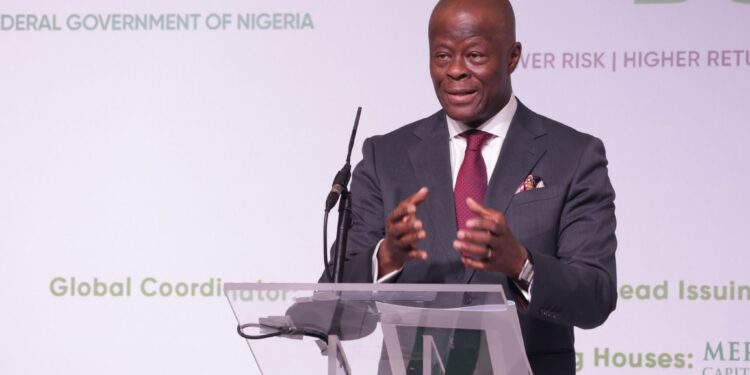Copyright bizwatchnigeria

Nigeria’s Minister of Finance and Coordinating Minister of the Economy, Wale Edun, has assured citizens that the country’s economy is on a strong path toward recovery, signaling the beginning of a new phase of stability and growth. In an official statement released on Sunday, titled “Nigeria Turning Towards Prosperity,” Edun expressed optimism that the nation has moved past its toughest economic challenges. “Despite some historical setbacks and present challenges, I believe the hardest part of our journey is behind us. Nigeria has turned a decisive corner. The road ahead will demand discipline, but we are firmly on the right path,” the minister stated. Macroeconomic Gains Since Tinubu’s Reforms Edun explained that when President Bola Tinubu took office in 2023, Nigeria’s economy was teetering on the brink of collapse, plagued by fuel subsidies, multiple exchange rates, and high inflation. According to him, the President’s immediate priority was to remove distortions, promote productivity, and rebuild investor confidence. Two years later, those reforms are showing tangible results. Nigeria’s GDP grew by 4.23% in Q2 2025, marking the fastest pace in four years. Inflation, while still high, has eased to 18.02% after six consecutive months of decline. The naira has also stabilized, narrowing the gap between official and parallel market exchange rates to about 1%, down from nearly 70% in 2023. Foreign reserves have climbed above $43 billion, the highest since 2019. “These are not just numbers,” Edun said. “They represent the foundation for inclusive growth that benefits every Nigerian.” Tackling Food Inflation and Supporting Households The minister highlighted food inflation as one of the government’s key priorities, acknowledging that it had been the “heaviest burden” on citizens since the removal of fuel subsidies. He revealed that food prices have begun to ease, citing that a bag of rice which cost around N120,000 in 2024 now averages N80,000 in major markets, while prices of garri, pepper, and tomatoes have also dropped. To cushion the impact of reforms, 8.1 million households have received direct cash transfers as part of the government’s social intervention programme. The initiative aims to reach 15 million families, ensuring economic relief for the most vulnerable Nigerians. “This is more than a safety net,” Edun said. “It ensures that the benefits of reform reach ordinary citizens while stabilizing household consumption.” Debt Challenges and Fiscal Reforms On Nigeria’s debt profile, Edun admitted that debt servicing remains a major fiscal burden but expressed confidence that new revenue measures would address it. Nigeria’s fiscal revenue-to-GDP ratio currently stands at about 10%, one of the lowest in Africa. However, the recently enacted Nigeria Tax Act, signed into law by President Tinubu in June 2025, seeks to broaden the tax base and improve compliance. The Act introduces a progressive tax system designed to protect low-income earners while adjusting rates for higher earners, reducing evasion and ensuring fairness. “With the Revenue Optimisation and Assurance Programme, we’re creating fiscal space for investment in infrastructure, health, and education,” Edun noted. Oil Sector Revival and Infrastructure Development The Finance Minister highlighted improvements in oil production and refinery capacity as major contributors to Nigeria’s recovery. With enhanced security and reduced oil theft, production has rebounded to 1.68 million barrels per day, including condensates. Refinery projects like the Dangote Refinery expansion are also setting the stage for a stronger downstream sector. Edun reaffirmed that public funds alone cannot meet Nigeria’s vast infrastructure needs. He said the government is leveraging public-private partnerships (PPPs) to finance large-scale projects such as the Ajaokuta–Kaduna–Kano gas pipeline and the Project Bridge 90,000 km fibre network, which are crucial for industrialisation and digital growth. Confidence in Nigeria’s Economic Future Edun pointed to growing confidence among investors as proof that Nigeria’s reform agenda is working. “Investors—domestic and foreign—are beginning to believe again. But this confidence must be nurtured through predictable policies and disciplined fiscal management,” he said. The minister added that Nigeria’s medium-term target is to achieve 7% GDP growth by 2027/28, which he described as achievable through collaboration between government, the private sector, and citizens. “If we stay united and committed, we will not only meet but exceed this target,” Edun concluded.



